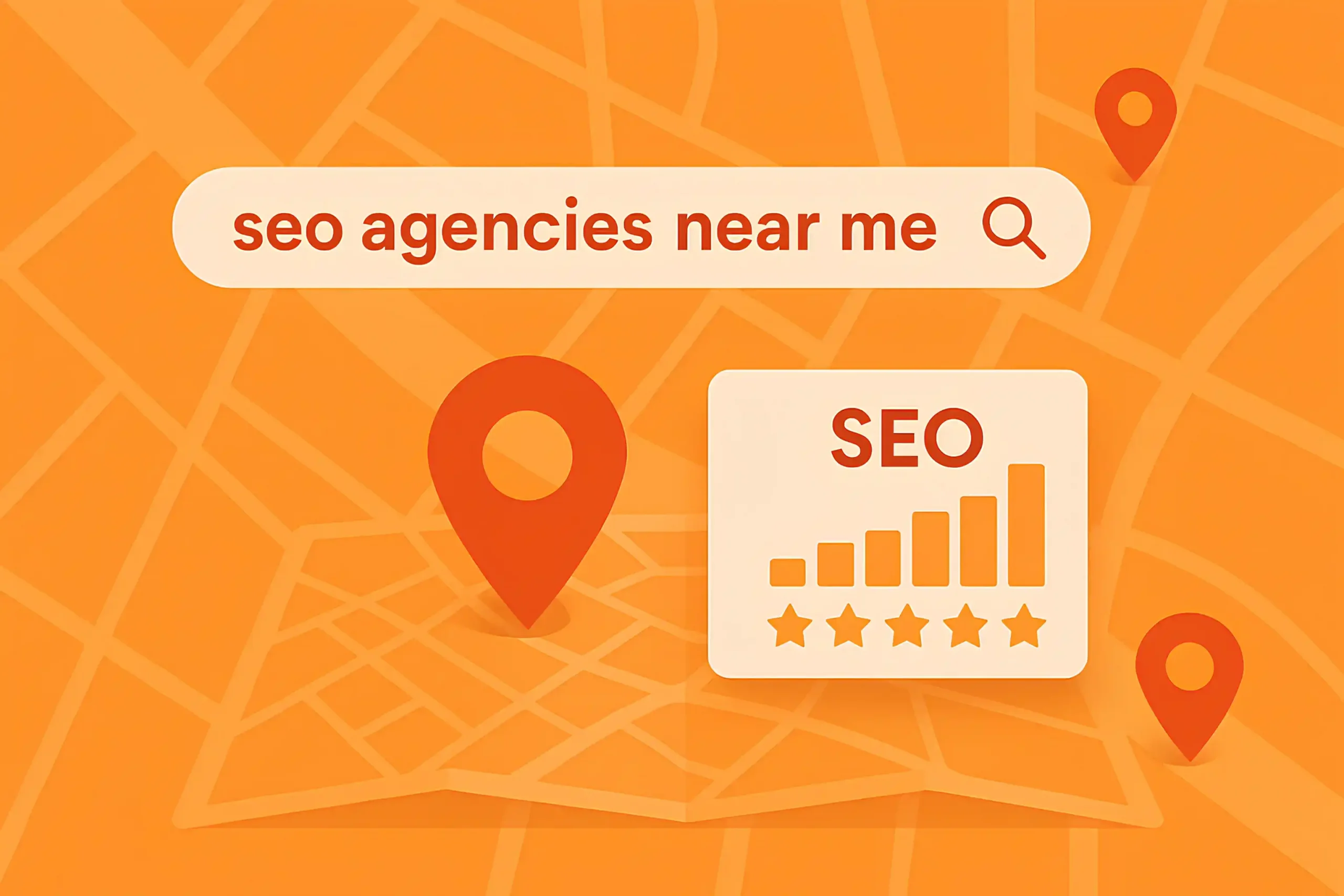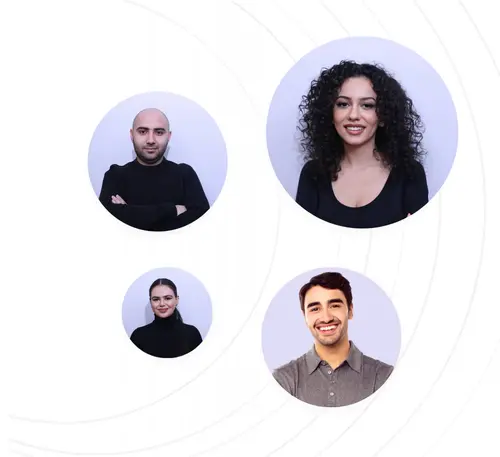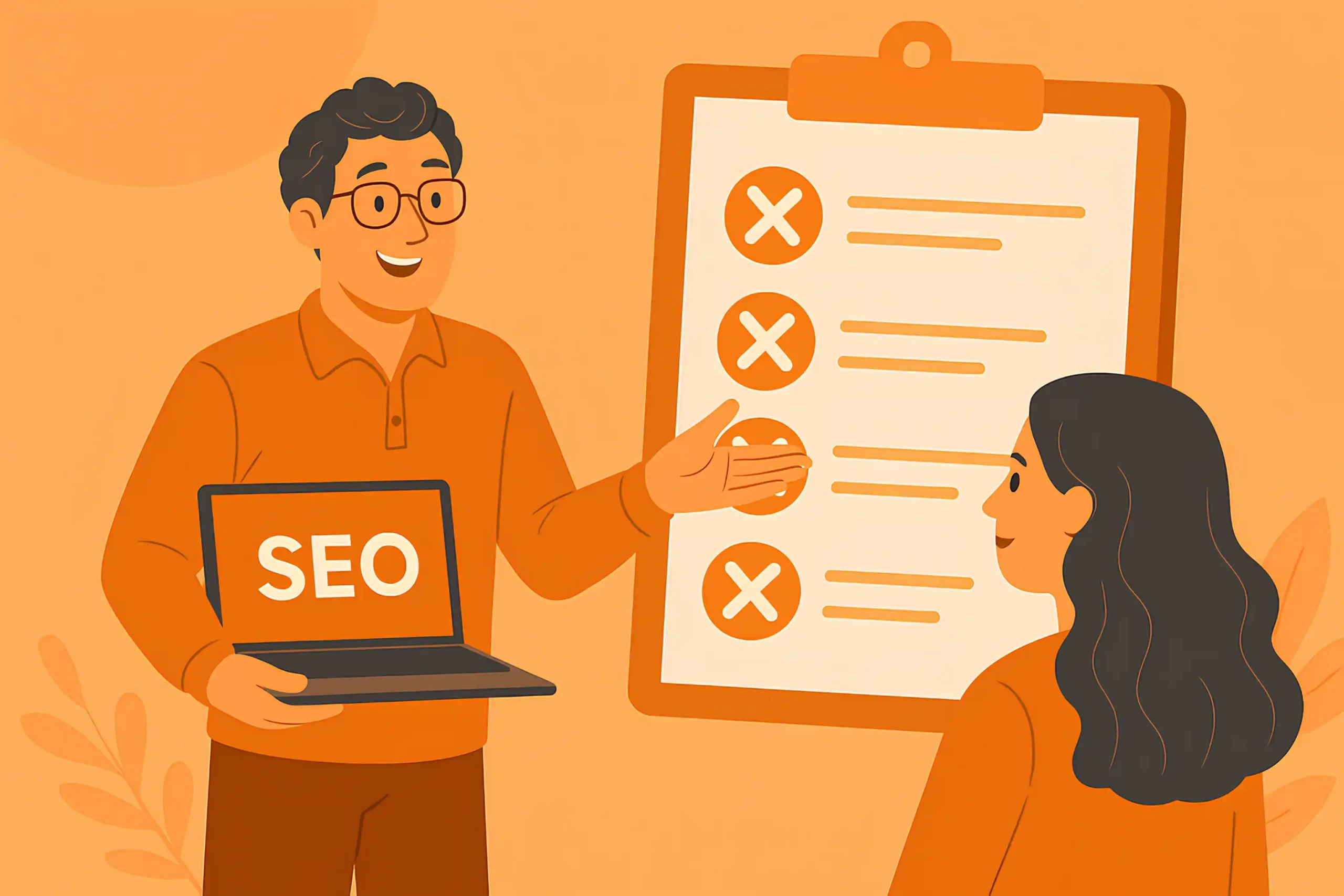Updated January 11, 2026
Find Top-Rated SEO Agencies Near Your Location (+ Google Maps)
You don’t have to struggle to find a trusted SEO agency nearby. Whether you’re a local business seeking to dominate search results or an entrepreneur looking for a trusted partner in your city, proximity to your SEO agency can make all the difference. To make your search easier, we’ve created this dedicated page with a real-time Google Map that shows SEO agencies near you based on your location and IP address.
But finding an agency is only half the battle; choosing the right one is where the real work begins. That’s why we’ve gone beyond just showing you the nearest agencies. We’ll also share expert tips and advice to help you partner with the right service provider.
Top SEO Agencies Near You
No more endless scrolling through directories or wondering if an agency understands your local market dynamics. With just a glance, you’ll find the nearest options to get your SEO journey started.
Why Choose an SEO Agency Near You?
There’s something powerful about working with people who know your local market. When you team up with an SEO agency near you, you’re connecting with a team that understands the heartbeat of your community. They know your audience’s preferences, habits, and even what they’re Googling late at night when inspiration or a problem occurs.

Proximity makes everything feel more tangible. Sure, Zoom is convenient, but nothing replaces sitting across a table, brainstorming over coffee, or mapping out strategies on a whiteboard while bouncing ideas off each other.
These face-to-face moments build trust, inspire creativity, and get everyone aligned in ways virtual calls simply can’t replicate. Plus, having someone local means you can pick up the phone, meet up, and discuss ideas quickly when things need adjusting.
Lastly, local SEO agencies are deeply rooted in your market’s culture. They understand how your competitors operate, what appeals to your customers, and even the regional nuances of search behavior.
Of course, you don’t always have to keep SEO in-house; many businesses successfully outsource local SEO services to trusted agencies that bring local insight and broader industry expertise.
How to Verify the Credibility of a Local SEO Agency
The industry is full of smooth talkers who promise the moon but deliver little more than confusion and wasted budget. You want to believe they’ll treat your brand like their own, but let’s be honest; talk is cheap in this industry.
Promises of “Page 1 rankings” or “10x traffic in 30 days” are thrown around so often that they’ve almost lost meaning. The good news? Once you master this process, you’ll never second-guess your decision again. So let’s break down how to evaluate whether an agency deserves your trust.
Begin your search by typing queries like “SEO agency near me” or “best local SEO services” into Google.
Look for agencies that appear in Google’s local pack (the map section) or at the top of organic search results.
Once you’ve identified potential agencies, check their reviews and testimonials on platforms like Google Business Porfile, Yelp, or Clutch.
Get valuable insights into their reputation, client satisfaction, and quality of service. Pay attention to detailed reviews that mention specific results, communication, and professionalism.
Look for examples of successful local SEO campaigns where they improved search rankings, traffic, or conversions for businesses in your industry or region.
Carefully review the data they share; do they include screenshots from tools like Google Analytics or Search Console? Do the results align with your business goals?
Before making a commitment, schedule an initial consultation with the agency. Use this opportunity to assess their expertise, professionalism, and communication style. Ask specific questions about their approach to local SEO, and observe how well they address your concerns.
Ask the agency to walk you through their SEO process, from initial audits to execution and reporting. Transparency is a key factor here; do they explain their methods clearly?
A strong agency will outline each step, including keyword research, on-page optimization, content strategy, link building, and regular reporting.
Credibility isn’t just a cleaned pitch deck or a few five-star Google reviews (though those can be part of the equation). It’s about the consistency of their approach, the transparency of their methods, and whether they’re willing to take the time to educate you, not just sell to you. The agencies that pass this test will often feel less like vendors and more like partners invested in your growth.
Questions to Ask During the Initial Meeting
When you sit down with a potential client for the first time, this is where the real work begins. These conversations shape everything, from the strategies you’ll build to the expectations you’ll manage.
The questions you ask during this initial meeting set the tone for your relationship and reveal whether this partnership has the potential to thrive. If you can ask the right questions and draw out answers that paint a clear picture of their needs, strengths, and blind spots, you’re already well on your way to creating a strategy that delivers results.
In this section, I’ll cover the critical questions to ask and the kinds of answers that signal alignment, potential red flags, or opportunities for growth.
Key Services Offered by Local SEO Agencies
Local SEO agencies live and breathe the local pulse, analyzing how people search, what they value, and how businesses can position themselves to stand out on a neighborhood level.
They’re the architects behind ranking in those highly sought-after “near me” searches, making sure that your business becomes the go-to for locals who are ready to take action.
| Service | Description | Why It's Important | How Local Agencies Shine |
|---|---|---|---|
| Local Keyword Research | Identifying keywords specific to your city or region | Targets customers searching for services near them | Deep knowledge of local search trends and terminology |
| Google Business Profile (GBP) Optimization | Setting up and optimizing your GBP profile for better local visibility | Boosts your presence in Google’s local pack and maps | Expertise in managing reviews, accurate NAP (Name, Address, Phone), and local rankings |
| Local Link Building | Building backlinks from local businesses, directories, and community sites | Enhances authority and relevance in local search results | Access to local networks, partnerships, and trusted directories |
| On-Page Optimization | Optimizing content, meta tags, and URLs for local keywords | Improves visibility and relevance for local search queries | Focuses on localized content and geo-specific optimization |
| Reputation Management | Monitoring and responding to reviews across platforms | Builds trust and encourages customer engagement | Ability to manage and boost positive reviews while addressing local concerns |
| Geo-Targeted Content Creation | Developing blogs, articles, and landing pages focused on local topics | Attracts regional audiences and improves SEO rankings | Familiarity with local events, culture, and community topics |
The Cost of Hiring an SEO Agency Near You
The cost of hiring a local SEO agency can vary widely depending on several factors, making it important to understand what influences pricing. One of the most significant variables is your location or country.
SEO agencies in major metropolitan areas or developed regions often charge higher rates compared to those in smaller towns or less competitive markets.
Another critical factor is the type of services you require. If you’re seeking basic services like on-page SEO or Google BusinessProfile optimization, you can expect lower costs than if you’re looking for a comprehensive strategy that includes content creation, technical SEO audits, local link-building, and ongoing campaign management.
The expertise and reputation of the agency also significantly influence the cost. Established agencies with a proven track record, specialized knowledge, and high-profile clients often charge premium rates.
This is because their experience allows them to deliver results more efficiently and effectively. On the other hand, smaller or affordable SEO agencies might offer competitive pricing to attract clients, though they may not always have the same depth of resources or expertise.
| Factor | Description | Estimated Cost Range | Examples of Impact |
|---|---|---|---|
| Location/Country | Costs vary based on local market demand and agency operating expenses. | $500 - $5,000/month (developed regions); $200 - $2,000/month (smaller markets) | Agencies in cities like Los Angeles or London charge more than those in smaller towns. |
| Type of Services | The complexity of the services you require affects pricing. | $300 - $1,000 (basic); $2,000 - $10,000+ (comprehensive) | Local SEO, Google Business Profile optimization, and audits cost less than full-scale campaigns. |
| Agency Expertise | Experienced agencies with a strong track record charge premium rates. | $1,000 - $10,000+ per month | Established agencies offer faster and more reliable results, while newer agencies might be more affordable. |
| Project Scope | One-time projects like audits cost less than ongoing services. | $500 - $3,000 (one-time); $1,000 - $10,000/month (ongoing) | Audits or GBP optimization are one-off tasks, while monthly content creation and link-building require ongoing retainers. |
| Hidden or Additional Costs | Extra charges for premium tools, consultation, or add-ons can increase overall costs. | $100 - $2,000+ (add-ons or unexpected fees) | Tools like SEMrush reports, additional keyword research, or extra ad campaign management might be outside the base package. |
Your business objectives and the scope of the project are equally important considerations. For example, if you’re running a multi-location business and need to target several areas simultaneously, the campaign’s complexity will naturally increase, leading to higher costs.
Similarly, if your industry is highly competitive, like legal services or real estate, you may need to invest more in aggressive strategies like content marketing or digital PR to outrank competitors.
Another factor is whether you choose to work with an agency on a one-time project or an ongoing retainer basis. One-time projects, such as a website audit or local SEO setup, typically come with a flat fee, whereas ongoing services involve monthly retainers.
If you’re running a business in Los Angeles and searching for a reliable SEO partner, our team at Digital World Institute is more than happy to help. We specialize in working with local businesses across LA, building strategies that don’t just look good on paper but also generate, calls, leads and clients. Whether you’re in healthcare, retail, or professional services, our Los Angeles SEO services are designed to put your business in front of the right people at the right time.
How to Find an SEO Consultant Near Your Location
Finding an SEO consultant near you can feel like a very different experience compared to hiring someone online. When you work with someone local, you’re not just paying for their technical skills, you’re also getting someone who understands your market in a way that a consultant across the country might not.
A local consultant knows how people in your city search, what kinds of competitors you’re up against, and the pain points of your community that can make all the difference in ranking for the right terms.
If your business depends on local customers: restaurants, dental clinics, law firms, or gyms, having someone who understands that environment firsthand is a real advantage.

There’s also the benefit of accessibility. Meeting face-to-face can build trust quickly, and for some business owners, that kind of relationship feels more reassuring than hopping on calls with someone they’ve never met in person. A local consultant can visit your office, learn your business up close, and sometimes even notice small opportunities you might not think to mention in an email.
They can also guide you better on local citations, regional directories, or opportunities for partnerships and local backlinks that are specific to your area.
The best place to start when looking for a local SEO consultant is usually the same place your customers are searching; Google. If someone can’t rank their own website for local searches like “SEO consultant near me” or “SEO agency in [your city],” that’s already a red flag.
Beyond Google, check business directories, LinkedIn, or even local business associations, because many strong consultants actively network in their community.

Once you’ve found a few names, look at their results. A good consultant should be able to show local case studies, client reviews, or rankings they’ve achieved for businesses similar to yours. Pay attention to whether they’ve worked with companies in your industry, or at least businesses with the same type of customer base.
If they’ve successfully helped a local law firm, restaurant, or healthcare provider, there’s a good chance they can translate that success to your business too.
If you want to evaluate skills such as keyword research, on-page SEO, link building, and technical knowledge. But for local consultants, you want to dig a little deeper. Ask how they handle Google Business Profile optimization, local citations, and reviews management.
A strong local SEO consultant should also be familiar with niche directories or platforms that apply to your industry. For example, a consultant working with a dentist in Los Angeles should know about Healthgrades or Zocdoc, not just Yelp.
It’s also smart to think about communication. A local SEO consultant might be easier to meet in person, but that doesn’t mean they automatically offer better service. Ask how often they report on progress, what tools they use to track results, and how they set expectations. The right consultant will be transparent about timelines and realistic about what it takes to rank in your market.
How to Find an SEO Coach Near Your Location
If you’re trying to find an SEO coach near you, the process is a little different from hiring an agency. A good place to start is still Google, searching for phrases like “SEO coach in [your city]” can uncover professionals who focus on one-on-one guidance.
LinkedIn is also a powerful tool, since many coaches brand themselves as educators or consultants rather than agencies, and you can check their activity, recommendations, and content to get a feel for how they teach.
If local matters to you, I mean you want face-to-face sessions or someone who really understands the search behavior of people in your region, then focusing on nearby coaches makes sense.

But in my opinion, there’s also a huge advantage to going outside your city or even your country: you’ll have access to SEO coaches with very specific expertise, whether that’s in technical SEO, link-building, or niche industries, and many work remotely through Zoom sessions anyway.
It’s important to look for someone who doesn’t just rank well themselves but has a track record of teaching others in a way that produces results. Whether they’re local or not, ask for proof of coaching experience, examples of businesses they’ve helped, and make sure their style of communication matches how you like to learn.
How to Find the Best SEO Conferences Near Your Location
If you want to find the best SEO conferences near you, the first step is to keep an eye on well-known industry events like BrightonSEO, Pubcon, or local SMX meetups, since many of them host editions in different cities throughout the year.
A quick search on Google for “SEO conference near me” or checking platforms like Eventbrite and Meetup will usually surface smaller, local gatherings that don’t always get big publicity but can be just as valuable for networking.
LinkedIn is another reliable place to spot upcoming events, especially if you follow SEO professionals and agencies that often share conference announcements.

Choosing a local conference can be a smart move if your goal is to connect with nearby businesses, agencies, or potential clients, because the networking opportunities are more directly tied to your market.
On the other hand, if you’re after cutting-edge insights, international contacts, or exposure to new tools and technologies, traveling to a bigger, non-local conference might be worth it. Either way, make sure to check the speaker lineup and agenda before committing; the best conferences are about whether the content and community fit the stage of growth you’re in.
How to Find the Best SEO Training Courses Near Your Location
Finding the right SEO training near you really depends on how you learn best and what stage you’re at in your business. For instance, local SEO trainings are great option if you value in-person interaction and hands-on learning.
Being in the same room with a trainer often makes it easier to ask specific questions, get instant feedback, and even build relationships with other business owners who are attending.
I mean, the reality is that online SEO training has opened a much wider set of opportunities. Instead of being limited to the handful of trainers or workshops happening in your city, you can learn directly from people who specialize in exactly what you need, whether that’s link building, technical SEO, or content strategy.

Online courses also allow you to move at your own pace, revisit lessons whenever you want, and often cost less than attending an in-person event. The trade-off is that you lose some of the networking and the face-to-face coaching element that can push you to stay accountable.
Both options have their place, but what really matters is finding a course that comes from someone who isn’t just teaching theory but has years of real-world experience to back it up.
That’s why I built my own SEO courses at Digital World Institute. Over the years, I’ve worked with companies across industries, generated millions of organic visitors, and trained hundreds of students worldwide. My courses are designed to cut through the noise and give you the exact strategies I use with clients, whether you’re just starting out or ready to scale your SEO to the next level.
If you’re serious about learning from someone who does this every day, not just talks about it, my SEO training programs are the perfect place to begin.
There are a few things worth thinking about before signing up. The first is the background of the instructor. SEO changes quickly from AI SEO services to LLMs and Google Overviews, and you don’t want someone teaching you from a playbook that worked ten years ago but doesn’t hold up now.
Look at whether the trainer is actively working in SEO, handling real clients, or running projects that prove they know what’s working today. Another factor is the depth of the course; some trainings only cover broad overviews, while others dive into advanced tactics like technical audits, link acquisition, or local SEO.
It’s also smart to consider how the course is structured. Is it a one-day workshop where you walk away inspired but possibly overwhelmed, or is it a program with modules, assignments, and ongoing support? Flexibility matters too. Some people prefer live sessions where they can interact, while others learn better through recorded lessons they can rewatch at their own pace.
Finally, always check for proof of results: testimonials, case studies, or feedback from past students can tell you a lot about whether the course delivers on its promises.







